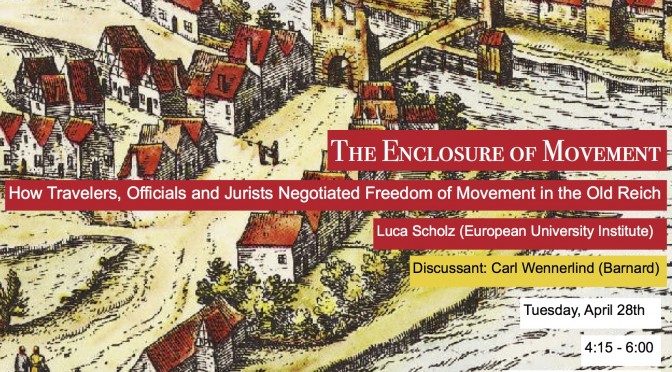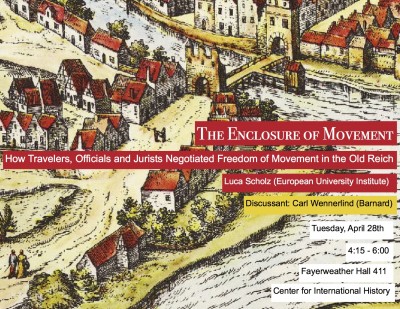In the fragmented political landscape of early modern Germany, control over moving goods and people was a permanent object of contention between travelers and more than three hundred competing polities. Such conflicts were often framed as matters of “conduct”, a term denoting the sovereign right to escort travelers and to levy customs duties on passing goods and people. Although only certain forms of movement were subject to conduct restrictions, public officials constituted a considerable obstacle for the unhampered movement on the roads and rivers traversing the patchwork empire. Accordingly, attempts at “monopolizing the legitimate means of movement” (John Torpey) clashed at more or less open forms of resistance from the side of those to be controlled. Drawing on the physical, symbolic and intellectual conflicts occasioned in this context, the talk explores the fundamentally controversial nature of these polities’ grasp on human mobility. Confronted with fragmented, multi-layered forms of territoriality, double-edged claims of protection and ubiquitous appeals to free movement, we are called to reflect on the border through the eyes of a past that knew restricted mobility as an all-pervasive but much-disputed principle of socio-spatial organization.

The Enclosure of Movement: How Travelers, Officials and Jurists Negotiated Rights of Passage in the Old Reich
Luca Scholz, European University Institute
Department of History
Columbia University
The Enclosure of Movement: How Travelers, Officials and Jurists Negotiated Freedom of Movement in the Old Reich
Tuesday, April 28, 4:15-6pm
Fayerweather 411
With Discussant Carl Wennerlind, Barnard
